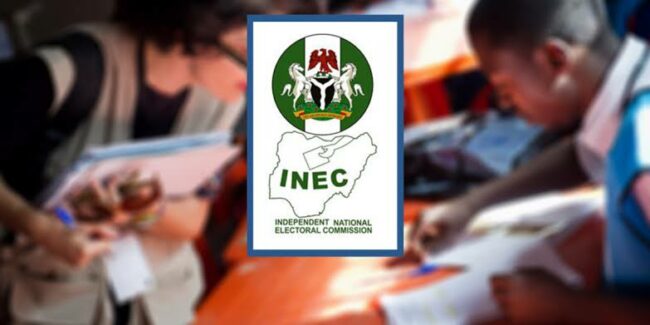Ahead of the next general elections, a Civil Society Organisation has appealed to the Independent National Electoral Commission (INEC) to collaborate with the National Assembly in initiating reforms that will uphold the sanctity of the ballot and inspire confidence in the electoral process.
It also urged the Federal Government to implement the Justice Mohammed Uwais report.
These recommendations were part of a communiqué issued at the end of a two-day National Conference on Strengthening Democracy in Nigeria, organized by the African Centre for Leadership, Strategy and Development (Centre LSD) and its partners.
ALSO READ: Bauchi gov signs executive orders to combat child trafficking, boost telecom devt
The communiqué, signed by Dr. Otive Igbuzor (African Centre for Leadership, Strategy and Development), Mrs. Abiola Akiyode-Afolabi, and Ezenwa Nwagu (for the partners), acknowledged Nigeria’s 25 years of uninterrupted democracy. However, it expressed concern that this continuity has not translated into the deepening of democratic values or institutions. Instead, systemic issues such as electoral malpractice, political party inefficiencies, weak governance structures, and endemic corruption have eroded public trust in the democratic process.
Moving forward, the communiqué called on the present administration to revisit the Uwais Report, which, it noted, emphasized long-term strategies for sustainable electoral reforms rather than short-term solutions.
Discussants at the session also urged the Executive to prioritize the development and implementation of policies aimed at reducing social inequalities and alleviating poverty to curb the alarming trend of “meal over vote.”
Additionally, the communiqué called on the National Assembly to prioritize pending electoral reform legislation to ensure a seamless electoral process.
“The Legislature is encouraged to actively fulfill its oversight, lawmaking, and representation responsibilities, as a functional legislature is essential for a thriving democracy,” it stated.
“The 10th National Assembly should prioritize proposals seeking to reform the electoral process, including other structural reforms such as the ‘winner-takes-all’ system. Given the limited timeframe before the next general elections, the National Assembly must also review the Electoral Act.
“Lawmakers should thoroughly scrutinize appointments to sensitive INEC positions to prevent the ruling party from installing loyalists in the electoral body.
“Furthermore, the inclusivity of the electoral process should be reviewed to allow diaspora voting, enabling Nigerians abroad to participate in national elections. This would ensure that all citizens, regardless of location, have a voice in shaping the country’s future and strengthen democracy by fostering a more inclusive and representative electoral system.”
Beyond this, participants urged the judiciary to be fair in its rulings on election petitions.
They also called on INEC to promote the decentralization of election management in Nigeria to enhance efficiency, transparency, and inclusivity by empowering regional and local structures to oversee electoral processes, address logistical challenges, and engage communities more effectively.
Additionally, INEC was tasked with reviewing its internal processes to incorporate ward-level collation of results and ensuring strict adherence to electoral guidelines.
“Technology should be integrated into the electoral process to enhance accountability and transparency, aligning with global best practices and ensuring the credibility of election outcomes,” the communiqué added.









